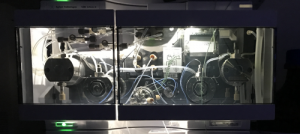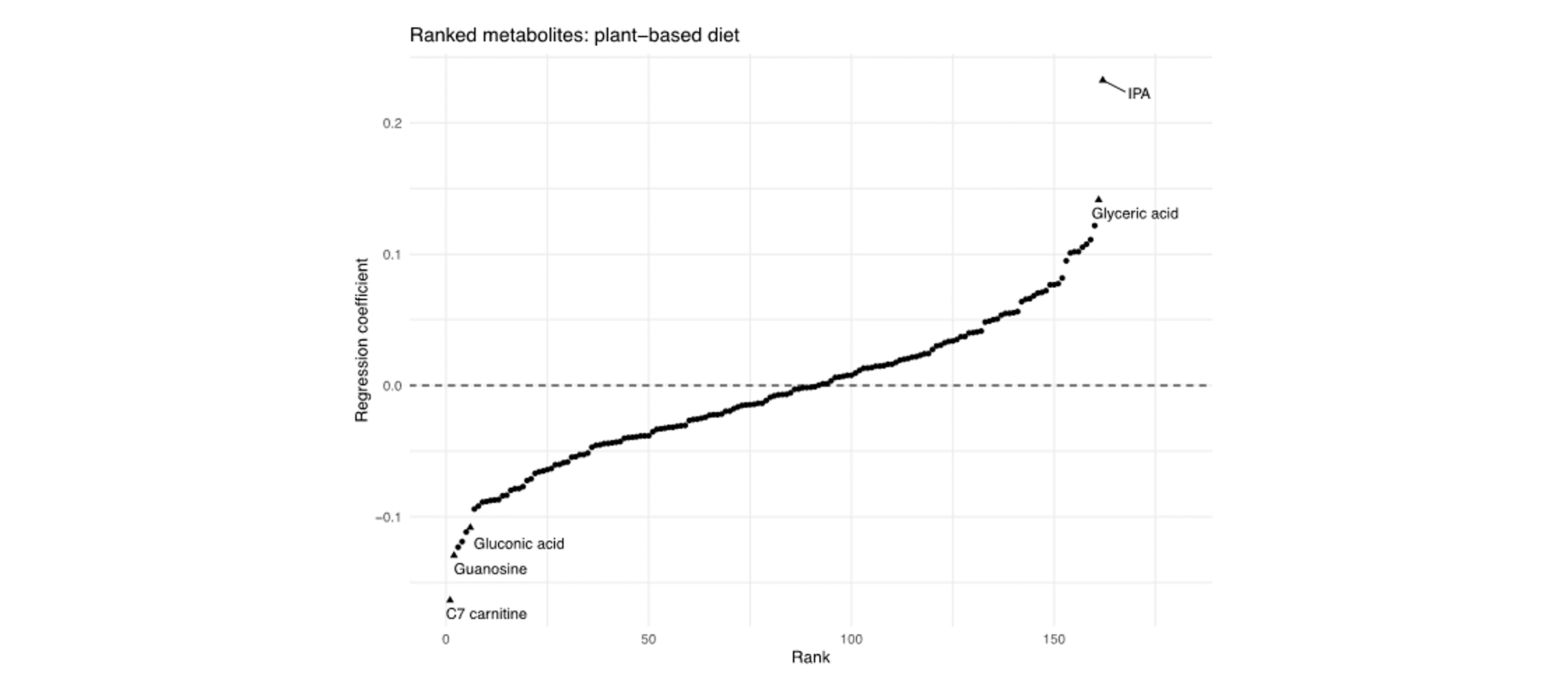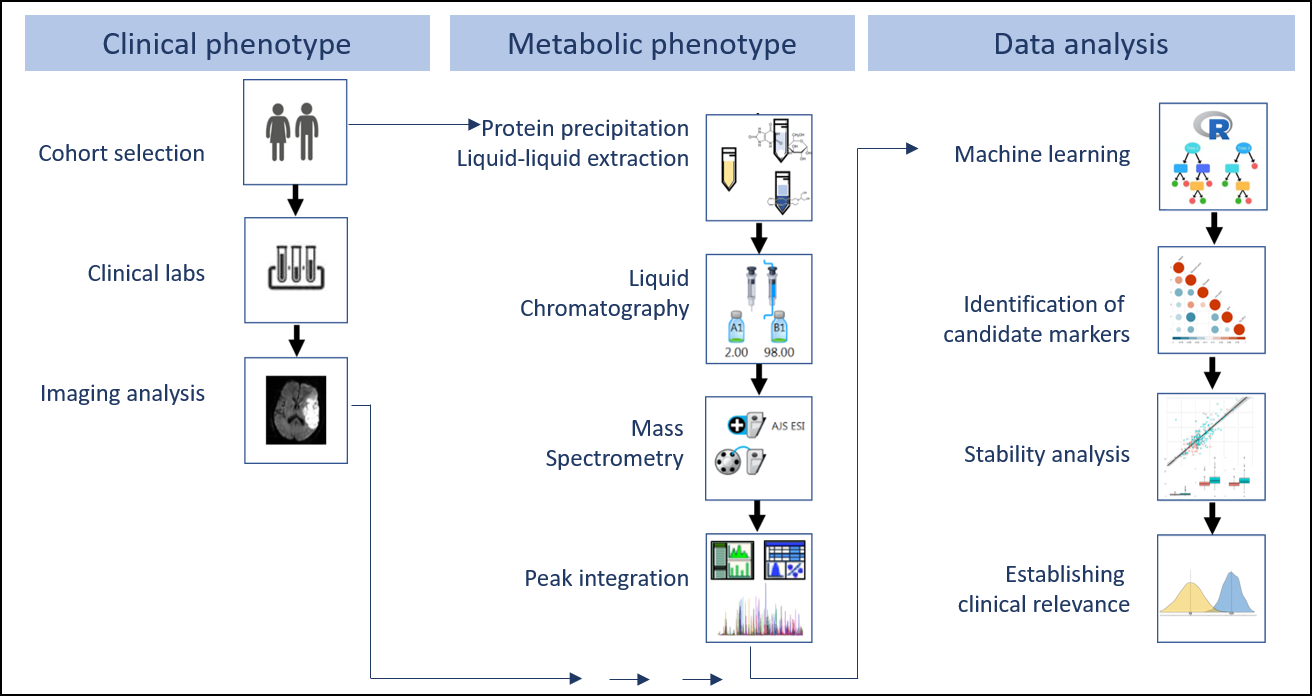A major tool we use is metabolite profiling (“metabolomics”), a liquid chromatography-tandem mass spectrometry (LC-MS/MS) technique that measures >200 metabolites simultaneously. We have used this approach to study the acute stress hyperglycemia response after stroke, discovering a link between hyperglycemia, brain cytotoxic injury and subsequent brain edema formation. We have also applied the technique to the Framingham Heart Study and found a novel association between obesity and anandamide.
Currently, we have used the method to identify an adverse metabolic profile highlighting inefficient oxidative phosphorylation in association with cardioembolic stroke. These findings raise the possibility that atrial fibrillation may in part result from disordered metabolism within the atrial myocardium. Our analyses have also highlighted that this adverse profile is linked to a subgroup of crytogenic stroke patients, indicating that metabolite profiling may assist with risk stratification of embolic stroke of undetermined source.
Our approach is also designed for high throughput metabolomics measurement in large epidemiological cohorts. We are studying novel metabolomic risk predictors of incident stroke, in collaboration with the REasons for Geographic and Racial Differences in Stroke (REGARDS) study, a large and diverse epidemiological cohort of community-dwelling individuals throughout the U.S.









